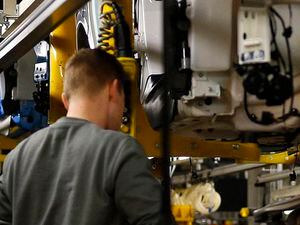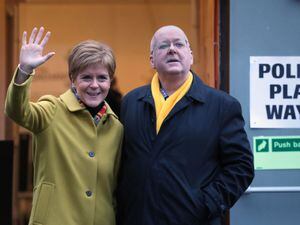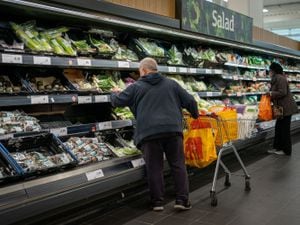UK economy declined in November on weak manufacturing sector
The Office for National Statistics said monthly gross domestic product declined 0.3% in November, after growth in the previous two months.

The UK economy slid into decline in November on the back of weakness in the manufacturing sector, according to official figures.
The Office for National Statistics (ONS) said monthly gross domestic product (GDP) declined 0.3% in November, after growth in the previous two months.
Economists had predicted that the economy would remain flat with zero growth for the month.
Meanwhile, the ONS said the economy grew by 0.1% over the latest three-month period – between September and October – as the economy performed better in September and October than previously estimated.
The three-month figure represented an improvement on analyst predictions, having forecast a decline of 0.1%.
The latest data comes as new forecasts from the National Institute of Economic and Social Research (NIESR) predict the economy will have flat-lined with zero growth for the last quarter of 2019.
NIESR said it tentatively forecasts growth will return in the first quarter of 2020, predicting 0.3% growth driven by improving figures for the service and construction sectors.
Rob Kent-Smith, head of GDP at the ONS, said: “Overall, the economy grew slightly in the latest three months, with growth in construction pulled back by weakening services and another lacklustre performance from manufacturing.
“The UK economy grew slightly more strongly in September and October than was previously estimated, with later data painting a healthier picture.
“Long term, the economy continues to slow, with growth in the economy compared to the same time last year at its lowest since the spring of 2012.”
GDP decline in November was heavily driven by continuing troubles in the manufacturing sector, which saw output fall 1.7% during the month, according to the new figures.
The services sector also reported a decline, although notably more modest, at 0.3% for the month.
However, construction output returned to strong growth, with output increasing by 1.9% during November after 2.2% decline was reported a month earlier.
Chris Williamson, chief business economist at IHS Markit, said: “The latest GDP data adds to signs that the UK economy stagnated at best in the fourth quarter of last year as heightened political uncertainty, Brexit risks and weaker global demand all colluded to dampen spending by both business and households.
“The good news is that all these headwinds are showing signs of moderating, if not even turning into tailwinds, as we move into 2020. However, downside risks remain elevated.”
The confirmation of monthly economic decline comes after a Bank of England policymaker suggested he could vote for an interest rate cut if GDP fails to pick up.
Gertjan Vlieghe told the Financial Times: “Personally I think it’s been a close call, therefore it doesn’t take much data to swing it one way or the other.”
His comments come just days after outgoing Governor Mark Carney said policymakers are mulling over the possibility of an interest rate cut, and stressed action would be “prompt” if the economy remains under pressure.
The latest softening by the Bank’s rate setters hit the pound, with the currency dropping against the dollar by 0.47% to 1.298 dollars and down 0.47% against the euro, worth 1.167 euro.
Business groups voiced their concerns over the fall in GDP and urged the Government to use the election to start encouraging growth.
National Chair at the Federation of Small Businesses, Mike Cherry, said: “Small businesses have been unable to plan, hire and grow amid political turmoil and a challenging economic landscape, so these GDP figures should act as a wake-up call to politicians to ensure they stand by their election commitments – now is the time to deliver.”
Chancellor of the Exchequer, Sajid Javid, added: “Uncertainty has held our economy back for too long. We are getting Brexit done so we can move on and chart a new course for our economy.
“In my Budget on March 11 we will lay the foundations for a decade of renewal that will unleash Britain’s potential by levelling up across our great country.”





